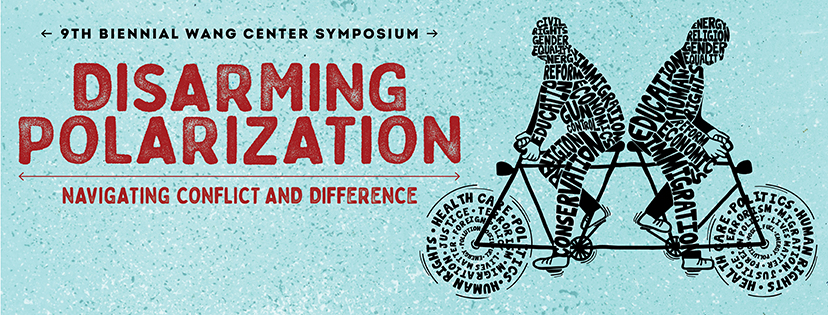Disarming Polarization: PLU symposium to address national, global divisiveness

Image: The Wang Center Symposium takes up the issue of heightened political and societal polarization within the U.S. and globally as well as its primary consequence, the increasing inability to communicate and collaborate.
By Thomas Kyle-Milward
Marketing & Communications
TACOMA, WASH. (Feb. 25, 2020) — Noted academics, activists and practitioners whose life’s work engages polarization — within and across disciplines, traditions, communities and peoples — will gather at Pacific Lutheran University on March 5-6 for the 9th Biennial Wang Center Symposium, “Disarming Polarization: Navigating Conflict and Difference.”
The two-day conference takes up the issue of heightened political and societal polarization within the U.S. and globally as well as its primary consequence, the increasing inability to communicate and collaborate across differences to develop solutions to the world’s most pressing problems. These problems include but are not limited to: climate change, food and water insecurity, immigration, poverty, and income inequality, as well as ongoing large and small-scale conflicts resulting from strained relations among those of different races, ethnicities, religions, genders, sexual orientations and social classes.
“A recent Gallup survey suggests that polarization negatively affects American’s community attachment and trust in others,” PLU Assistant Professor of Psychology Corey Cook states. “This is backed up by research suggesting that political ideology facilitates animosity toward people who hold “opposing” beliefs. It is pressing that academic and community leaders shed light on how to address these issues.”
The symposium will feature approximately 12 back-to-back sessions conducted by a combination of keynote addresses by experts and panels of in-the-field practitioners from both the U.S. and abroad. These include NYU Professor of Philosophy and Law Anthony Kwame Appiah, who will share his reflections on how widely held identity categories are used and abused. Ara Norenzayan, Professor of Psychology at the University of British Columbia and a co-director of UBC’s Centre for Human Evolution, Cognition and Culture, will address the evolutionary origins of religion and the psychology of religious diversity in today’s globalized world.
Dean Spade, Associate Professor at Seattle University School of Law, will challenge the audience to consider the need to go beyond traditional civil rights reform to protect the rights of trans and gender-nonconforming people. UC Berkeley-based physician and medical anthropologist Seth Holmes examines social hierarchies, health inequities and the ways in which such asymmetries are naturalized, normalized and resisted in the context of transnational im/migration, agro-food systems and health care.
“Polarization not only drives people apart, it also discourages the kind of independent and creative thinking that are necessary for our communities and societies to thrive,” said Tamara R. Williams, Executive Director of PLU’s Wang Center for Global Education and coordinator of the event. “If there is one thread that connects the speakers and panels in this symposium, it is that they disrupt predictable and repetitive ways of thinking and acting; they all invite the audience to reflect more deeply on what humans have in common rather than what keeps us apart.”


